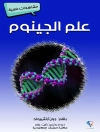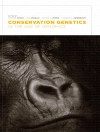sector. This ensured eventual transfer of the technology demonstrated at the wo- shops and Technical Meetings to marketable devices. BIOSET provided assistance for researchers from European laboratories to meet to exchange ideas, use equ- ment, and establish a basis for new joint projects. The secretariat of the Concerted Action BIOSET supported the Technical Meetings. There were three Technical Meetings held, two in Berlin in 1997 and 1998, and the third in Barcelona, in April 2000. The goal of these technical meetings was to join different research and industrial teams to evaluate the performance of their biosensor technology in field conditions with common and standardized surface and waste waters. As a result of these field experiments, the additional information that biosensors can offer to environmental monitoring was also evaluated. Thus, these three Technical Meetings were useful accompanying measures and practical additions to the currently organized yearly workshops. The concerted action BIOSET was f- lowed by the SENSPOL network. The 1st SENSPOL Workshop was held on the 9–11 May 2001 on Sensing Technologies for Contaminated Sites and Groundwater at the University of Alcala. There was one special Workshop on “Genotoxicity Biosensing (TECHNOTOX)” supported by the European Commission DG XII D-1 and BIOSET in the year 2000. The TECHNOTOX meeting at the Flemish Institute for Technological Research (VITO) in Mol was organized by Phillippe Corbisier (VITO), Peter-D. Hansen (TU Berlin) and Damia Barcelo (CSIC Barcelona).
สารบัญ
Biosensors for Environmental Monitoring at Global Scale and the EU Level
Marinella Farré, Sara Rodriguez-Mozaz, Miren López de Alda, Damià Barceló, and Peter-D. Hansen
Achievements of the RIANA and AWACSS EU Projects: Immunosensors for the Determination of Pesticides, Endocrine Disrupting Chemicals and Pharmaceuticals
Sara Rodriguez-Mozaz, Maria J. López de Alda, and Damià Barceló
Biosensors for Pharmaceuticals and Emerging Contaminants Based on Novel Micro and Nanotechnology Approaches
Javier Adrián, Fátima Fernández, Alejandro Muriano, Raquel Obregon , Javier Ramón-Azcon, Nuria Tort, and M.-Pilar Marco
Recombinant Yeast Assays and Gene Expression Assays for the Analysis of Endocrine Disruption
Benjamin Piña, Susanna Boronat, Marta Casado, and Alba Olivares
Biosensors for Aquatic Toxicology Evaluation
Marinella Farré and Damià Barceló
Genetically Engineered Bacteria for Genotoxicity Assessment
Alva Biran, Rami Pedahzur, Sebastian Buchinger, Georg Reifferscheid, and Shimshon Belkin
Adverse Effects in Aquatic Ecosystems – Genotoxicity as a Priotriy Measurement
Tamara Grummt, Peter-Diedrich Hansen, Petra Rettberg, Petra Waldmann, Jürgen Zipperle
Genotoxicity in the Environment (Ecogenotoxicity)
P. D. Hansen, E. Wittekindt, J. Sherry, E. Unruh, H. Dizer, H. Tüg, H. Rosenthal, V. Dethlefsen, H. von Westernhagen
Liquid chromatography- mass spectrometry methods for analysis of endocrine disrupting chemicals in wastewaters
Cristina Postigo, Marina Kuster, Marta Villagrasa, Sara Rodríguez-Mozaz, Rikke Brix, Marinel.la Farré, Miren López de Alda, Damià Barceló












